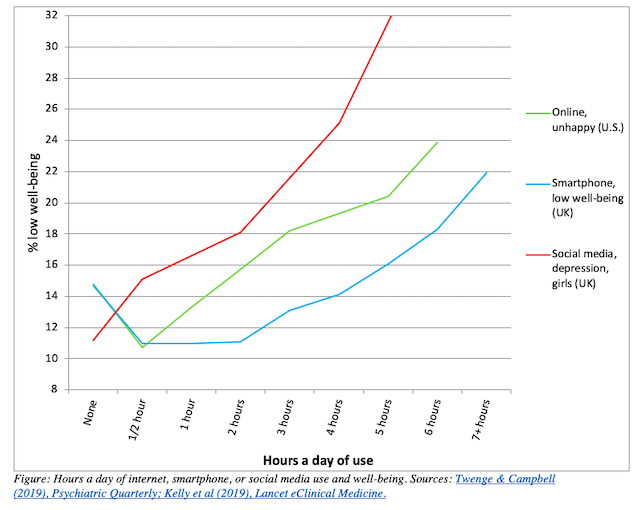Michael Pollan’s “Why Bother"
Conversation
Me: I think we really need to talk about a rising issue of the effects that electronics are having on people's mental health, especially younger people. The long amounts of screen time and lack of real world interactions is causing people to have depression and anxiety.
Companion: Yeah but there isn't really anything you can do about that. You can't just get people to put down their electronics.
Me: That is true but we can take small steps that create small changes that add up. If people set screen limits for themselves or their children and encourage themselves and children to have real life interactions it would help.
Companion: I guess but tech companies are just going to continue to encourage large amounts of screen time.
Me: Public pressure can force that to change. Spreading awareness on this issue with encourage that force.
Companion: I guess your right.
Summary
Pollan answers his own question "Why Bother?" when he argues in his writing that people's small individual actions do make a difference and matter. He acknowledges that its easy to feel like small actions like using less plastic, are too little to make any real difference. He shows that he is against this kind of mindset because change starts with individual actions. If enough amount of people take action, there will be real change that we can see.
Believing Game:
Specialization has made people too dependent on those who specialize in fields and causes us to not have basic life skills. People should be more self reliant as that will make society stronger.
Doubting Game:
Specialization does have its flaws, but it is also something that should be depended on since if everyone were to be things like farmers, progress would slow down. Making it more sustainable is what we should be doing instead of rejecting specialization as a whole.
What can we learn?
Pollen's essay teaches to not only define the problem but connect it to a larger issue.
My Proposal:
An excessive amount of screen time particularly when it comes to things like phones, video games, and social media especially. There have been lots of studies that have linked excessive amounts of screen time, especially in younger generations, to a rise in depression and anxiety. According to the National Institute of Health, among children ages 14 to 17 years old, high users of screens (7+ h/day vs. low users of 1 h/day) were more than twice as likely to ever have been diagnosed with depression and anxiety. This issue is very concerning considering how electronics are deeply embedded into the way that people live from education to entertainment. To combat this issue, parents should be more strict with the amount of time that their children are spending on their electronic devices. Parents should also not be giving children under the age of 5 devices. Schools should also implement tech free zones that limit the amount of screen time the students are getting. Research shows that reducing screen time even if it is a small reduction, will lead to improvement in mental health.
